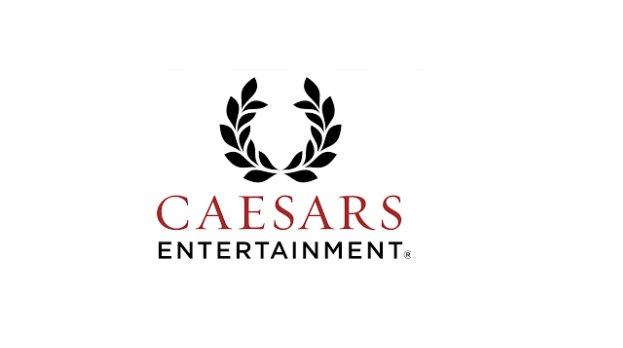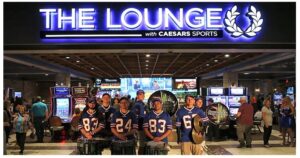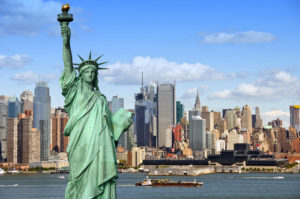HARTFORD, Conn. (AP) — A bipartisan group of lawmakers from around Connecticut announced Wednesday they’ve crafted a wide-ranging compromise bill they hope could lead to a tribal casino in Bridgeport and legalized sports betting.
The legislators unveiled the proposed Connecticut Jobs and Revenue Act, a 37-page bill that requires the Mashantucket Pequot and Mohegan tribes to spend a minimum of $100 million on an entertainment and gambling facility in Connecticut’s most populous city. The planned casino would be an “anchor” for additional private development.
In return, the tribes, who own and operate two large resort casinos in southeastern Connecticut, would be authorized to conduct sports wagering at Foxwoods Resort Casino and Mohegan Sun, as well as through mobile applications, online and other locations in the state.
“We all are very interested in growing Connecticut jobs and Connecticut revenue and we believe that by working together we can do the best that we can for the state of Connecticut,” said state Sen. Cathy Osten, D-Sprague, noting how the bill would create jobs in different regions of Connecticut by allowing “entertainment zones” in Hartford and two other yet-to-be announced locations where the tribes would offer sports betting.
The lawmakers, members of the House of Representatives and the Senate, hope to have a vote on the bill during a special legislative session. But it remains questionable whether that will happen. Legislative leaders have not yet decided whether to call rank-and-file members back for a vote before the next regular session, which begins in February. And Democratic Gov. Ned Lamont, who can also call lawmakers back for a special session, expressed concern with the draft legislation. While he acknowledged there are elements of the bill he believes could work, Lamont suggested the bill might lead to legal challenges, including from MGM Resorts, which opposes any legislation that grants exclusive gambling rights to the tribes.
“I’ve got to see where all the players are on this because if this gets stuck in the legal muck, like it’s been for the last five years, we’re not going to show any progress,” said Lamont, who has also tried to reach a wide-ranging gambling agreement.
Proponents said they wouldn’t be surprised if MGM sued.
“I know MGM has always threatened to do this, but I think this is a very positive step for the state of Connecticut that Bridgeport is finally realizing all the false promises from MGM never came to fruition,” said Rep. Chris Davis, R-Ellington. A message was left seeking comment with MGM.
Connecticut lawmakers have been debating a possible casino in Bridgeport for years. Most recently, the city’s delegation has pushed for legislation that would allow other entities to develop a casino besides the tribes, which currently have exclusive casino gambling rights in the state in exchange for providing the state 25% of their slot machine revenues. MGM has said it wants to build a more than $500 million facility in Bridgeport, a move that would risk the state’s share of slot revenues.
But the delegation appeared Wednesday to be united behind the concept of a smaller tribal casino.
“By investing in our cities, we can create new destinations that will spur additional development and create not only jobs but also vibrant urban centers,” said Rep. Christopher Rosario, D-Bridgeport, in a written statement. “I’m proud to support this bill and urge other elected leaders to join the fight.”
Under the bill, the tribes would continue to proceed with developing a jointly owned casino in East Windsor, to compete with a nearby MGM casino in Springfield, Massachusetts. Similar to the arrangement the state of Connecticut reached concerning that facility, called Tribal Winds Casino, the tribes would contribute 10% of their table games revenues generated at the proposed Bridgeport casino to the state’s tourism marketing fund. Also additional funding would be earmarked to various cities, including Hartford, New Haven and Waterbury. The bill also devotes additional funding to combat problem gambling.
The plan also imposes an 8% tax on sports wagering, projected to generate $33 million over five years, and a 10% tax on internet gambling, expected to generate $87 million over the same period. The proposed Bridgeport casino is estimated to generate $15 million annually for the state.
Additionally, the bill calls for “modernizing” the Connecticut Lottery by allowing it to sell lottery tickets online and to offer Keno, a lottery-type game, online as well.
The chairman of the Mashantucket Pequots and the interim chairman of the Mohegan welcomed the legislation. In a joint statement, they said the draft bill “takes us one step closer” toward preserving the state’s “historic partnership” with the tribes and they look forward to continuing discussions with Lamont and state lawmakers.








